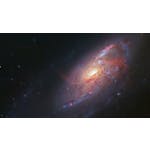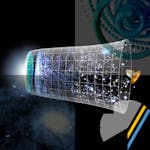Description
Each week, we'll look at a different aspect of astronomical technology, matching each piece of technology to a notable scientific finding. We will explain how the technology works, how it has enabled us to collect astronomical data, and how we interpret the data to make scientific discoveries using some basic physics.
Syllabus :
1. Science and Technology
- Our Knowledge of the Universe
- Revolutions in Astronomy
- Why Astronomy is Hard
- The Horse and Cart
2. Telescopes and Stars
- Picturing the Universe
- The Sun - is every star like it?
- How Telescopes Work
- We are Stardust
- Even Bigger Telescopes?
3. Space and Black Holes
- Our Enemy the Atmosphere
- Hunting for Black Holes
- Rockets, Spacecraft, and Orbits
- Hunting for Black Holes
- Can Space Missions get Cheaper?
- A Sense of Scale
4. Detectors and the First Galaxies
- Catching the Light from the Stars
- Galaxies since the Dawn of Time
- Light, Matter, and CCDs
- Infrared Detectors
- Galaxies since the Dawn of Time
- Another Revolution in Detector Technology?
5. Computers and Killer Rocks
- Computers Everywhere
- Computers, Databases, and the Internet
- Killer Rocks
- Hitting the Buffers?
6. Spectroscopy and Dark Energy
- Light, Atoms, and Motion
- The Accelerating Universe and Dark Energy
- How Spectrographs Work
- Dark Energy
- A Perfect Spectrograph?







